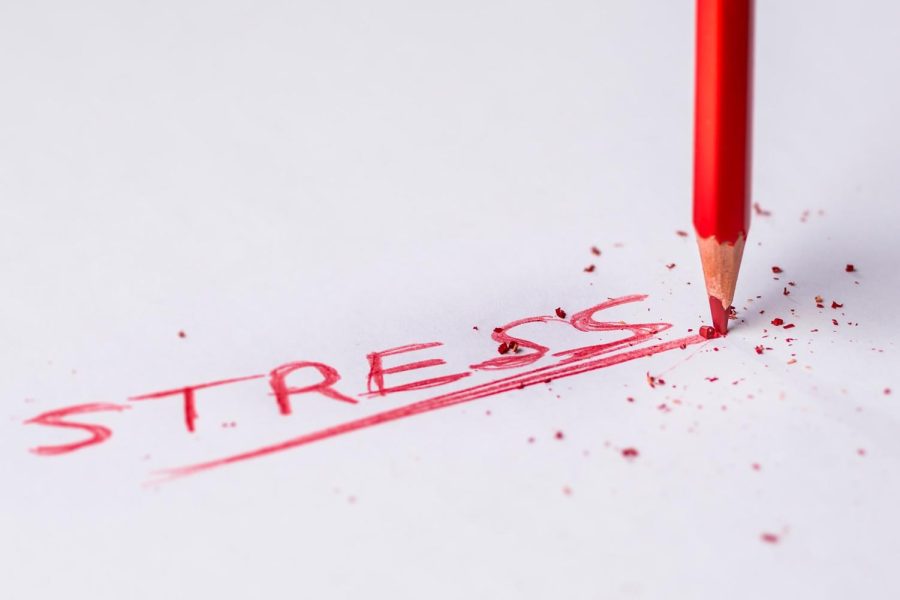Stress at LHS: How Do We Deal?
Stress is a part of everyday life. We all know how work and activities pile up, and how we then start to feel stressed and overwhelmed. Lives full of socializing, activities, dating, sports, and schoolwork cause our stress to grow. The question is, “How should we deal with stress?”
First, what really is stress? Stress is the activation of the “fight or flight” response in our bodies. This response activates when the body feels attacked from predators or things that can harm it. The response prepares the body to react to danger. This response does not only turn on when the body is in danger, but it also turns on when it is met with a variety of challenges each day. Interestingly, our everyday high school lives cause our brain to activate the “fight or flight” response.
“Today’s youth are under a very different kind of stress than those of generations past,” said LHS social worker Julie Chaffe. “With the increase in social media and technology, today’s youth really do not get a ‘break’ from their stress. Whether it is related to school, friends, relationships, or family, there are constant reminders that make it difficult to escape from stress, and it makes it appear to be more intense,” added Chaffee.
Chaffee said, “The Covid pandemic added an element of stress and chaos that many had not experienced before…the effects of this are still prevalent in my students’ lives, resulting in difficulties academically, socially, and emotionally.”
Stress can play a major role in one’s health. According to the American Phycological Association is APA (apa.org), “The longer stress lasts, the worse it is for both your mind and your body.” The APA website added, “The long-term activation of the stress response system and the overexposure to cortisol and other stress hormones that come with it can disrupt all of your body’s processes. This can put you at increased risk for a variety of physical and mental health problems, including anxiety, depression, digestive issues, headaches, muscle tension and pain, heart disease, heart attack, high blood pressure, stroke, sleep problems, weight gain, and memory and concertation impairment.” The APA adds that we may be able to recognize long-term stress in our behavior by feeling fatigued, unable to concentrate, or irritable for no reason.
How can we better handle stress? There are many ways to overcome stress. Chaffee said, “Some of the most helpful and common ways to cope are through mindfulness and meditation, deep-breathing techniques, listening to music, walking, exercising, journaling, yoga, talking to friends, and any kind of physical activity.” Chaffee added that LHS students who need help are welcome to go to the social workers’ offices and that it is common for some students to ask for help.
When asked how she handles stress, freshman Neeve Douglas said, “I try to find the source of the problem, and if I can’t, I take a break. [I] work on it if it is something that can’t be fixed right away…” Walking away from a stressful situation or taking a break is all right and is a common method used to try and reduce oncoming stress. Freshman Andrew Callaghan handles stress similarly. He said, “I take a break and come back to it later. I also talk to someone about it.” Chaffe added, “Oftentimes, if we walk away from a stressful situation and get some perspective, it is helpful to then come back with a clear mind.”
It is important to know about stress and the best coping methods for it. The same methods do not work for everybody; stress teens can find the best always to successfully reduce stress in their lives.

Hi! My name is Sophia Woods, and I am a member of the Class of 2026. I am a contributor for Horizon and Driftstone. In my free time, I love reading, writing,...






















